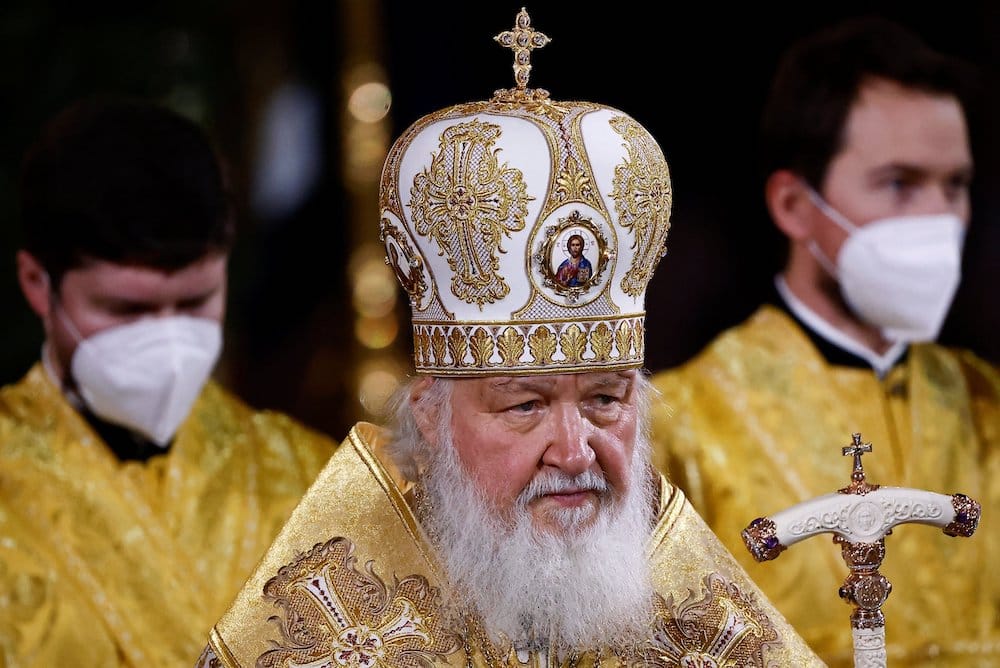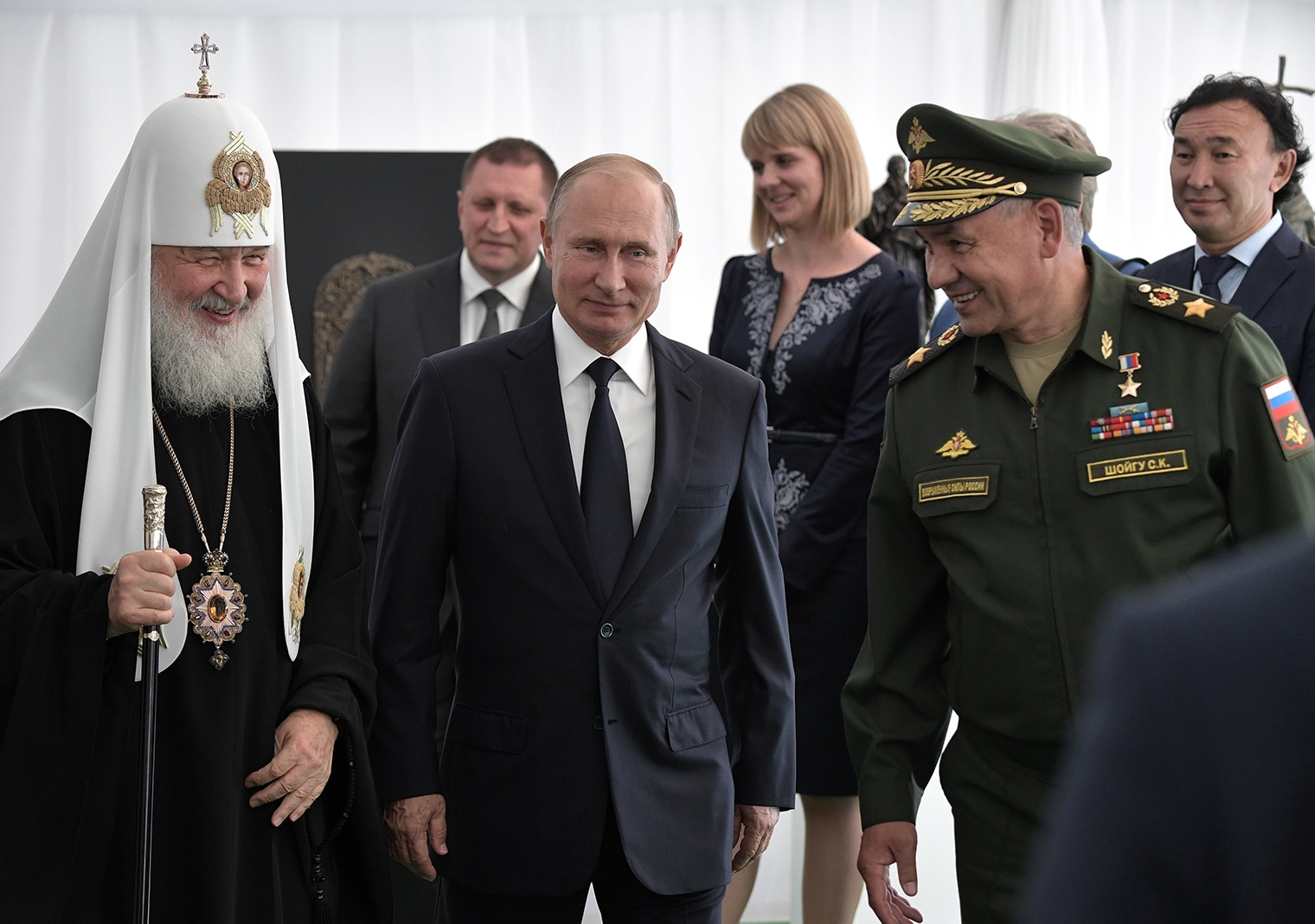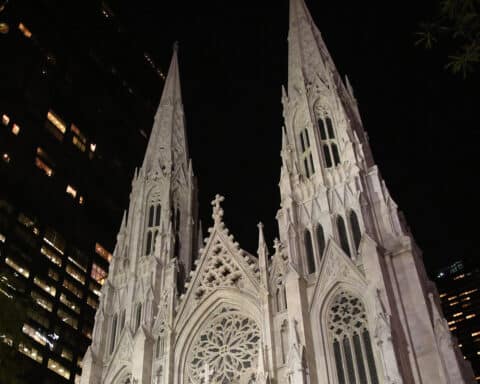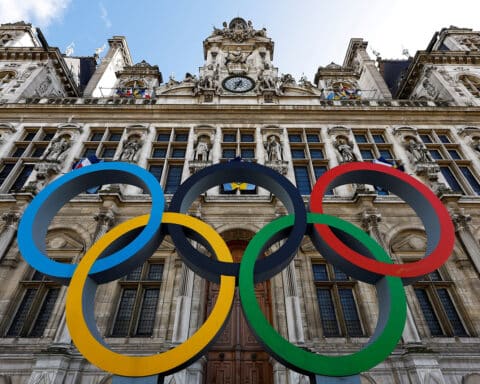LVIV, Ukraine (OSV News) — Ukraine’s Secret Service, SBU, announced suspicion against Russian Orthodox Patriarch Kirill, who, it said, “blessed the racists to kill Ukrainians.”
“The Security Service and the Prosecutor General’s Office gathered evidence against the head of the Russian Orthodox Church Volodymyr Gundyaev (known as Kirill), who promotes armed aggression of the Russian Federation and denies the war crimes of the occupiers,” the Nov. 4 statement of the institutions said.
According to the investigation, the Moscow Patriarch “is a member of the inner circle of Russia’s top military and political leadership” and was “one of the first to publicly support a full-scale war against Ukraine.”
The report also said Kirill “regularly spreads Kremlin narratives” in the form of online sermons or his own video comments. The SBU and Ukraine’s Prosecutor gave two concrete examples of a video posting from March 2022, where Kirill “blessed the commander of the Rosgvardia (National Guard), (Victor) Zolotov, for the war against Ukraine.”
Patriarch justifies occupation
In February 2023, SBU said, “a video was released on the ROC’s official YouTube channel in which Gundyaev (Kirill) justified the occupation of the East of Ukraine.”

In addition, the Patriarch “repeatedly gave interviews to propagandists of Russia’s central TV channels, in which he supported the Kremlin’s aggressive policy and called on the faithful to unite in the war against Ukraine,” SBU said.
The SBU specified that Kirill is suspected under several articles of the Criminal Code of Ukraine, including “encroachment on the territorial integrity and inviolability of Ukraine; justification, recognition as legitimate … of the Russian Federation against Ukraine, glorification of its participants,” as well as “planning, preparation, launching and conducting an aggressive war.”
According to the Security Service, since the beginning of Russia’s full-scale invasion on Feb. 24, 2022, 70 criminal proceedings have been initiated against representatives of the Ukrainian orthodox Church — Moscow Patriarchate, with 16 of them being metropolitans of the Orthodox church.
Blessing a ‘holy war’
From the first days of the full-scale invasion, Kirill blessed the aggressors for a “holy war.”
“The Church realizes that if someone, driven by a sense of duty and the need to honor his oath, stays loyal to his vocation and dies while carrying out his military duty, then he is without any doubt doing a deed that is equal to sacrifice. He sacrifices himself for others. And therefore, we believe that this sacrifice washes away all the sins that a person has committed,” Kirill stated in a September 2022 sermon.
According to the Institute of Central Europe in Lublin, Poland, “The alliance between the altar and the throne has a long history in Russian church tradition,” and dates back to the 15th century.
“The Moscow Patriarchate, reactivated in 1943, was fully controlled by the Russian security apparatus, and close contacts between church hierarchs and the authorities of post-Soviet Russia form one of the key elements in the legitimisation of Vladimir Putin’s regime,” the institute said.
“Patriarch Kirill has continued to defend the invasion despite mounting evidence of Russian war crimes committed in Ukraine,” Archbishop Borys Gudziak of the Archeparchy of Philadelphia wrote for the Atlantic Council on Aug. 3. “He has remained unmoved by the atrocities uncovered in liberated towns such as Bucha, or the seemingly endless accounts of mass killings, sexual violence, torture chambers, child abductions, and forced deportations throughout Russian-occupied Ukraine,” Archbishop Gudziak said.
He added that Kirill “is silent regarding the constant missile and drone assaults against civilian targets including homes, apartment buildings, shopping centers, churches, hospitals, schools, and grain storage facilities.”
Attacks in Odes
Meanwhile, Russia launched a major air attack on the Ukrainian Black Sea port of Odesa late at night on Nov. 5, wounding at least eight people, setting ablaze trucks loaded with grain and damaging one of the city’s principal art galleries, officials said, according to Reuters.
The strike caused significant damage to the Odesa Fine Arts Museum, located in one of the oldest, tsarist-era palaces at the heart of the city.
The museum hosted some 10,000 pieces of art before the war, including paintings by some of the best-known Russian and Ukrainian artists of the late 19th and early 20th centuries. The Odesa city council published a video showing smashed windows and debris inside what it said was the art museum, Reuters said.
In an NBC Nov. 5 interview, Ukrainian President Volodymyr Zelenskyy rejected possible peace negotiations with Russia saying “We can’t trust terrorists,” and said that Ukraine is not ready “to give our freedom to this f—ing terrorist Putin.”
“Russian aggression against Ukraine is not the result of plans determined by President Putin alone; nor is Patriarch Kirill the only establishment figure to publicly back the invasion. On the contrary, levels of support, or at least acquiescence, among the Russian Orthodox Church and Russian society as a whole remain scandalously high,” Archbishop Gudziak wrote.





